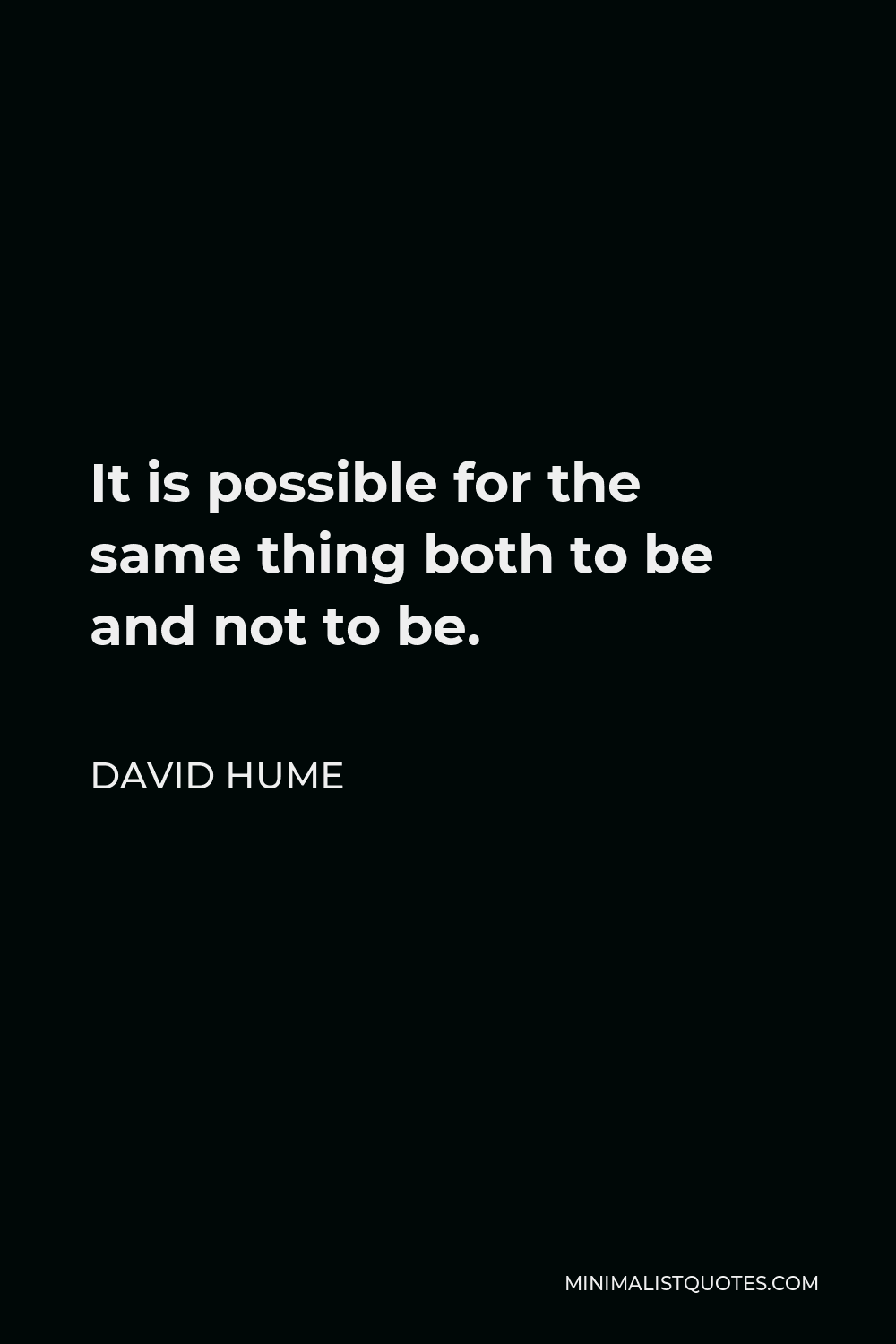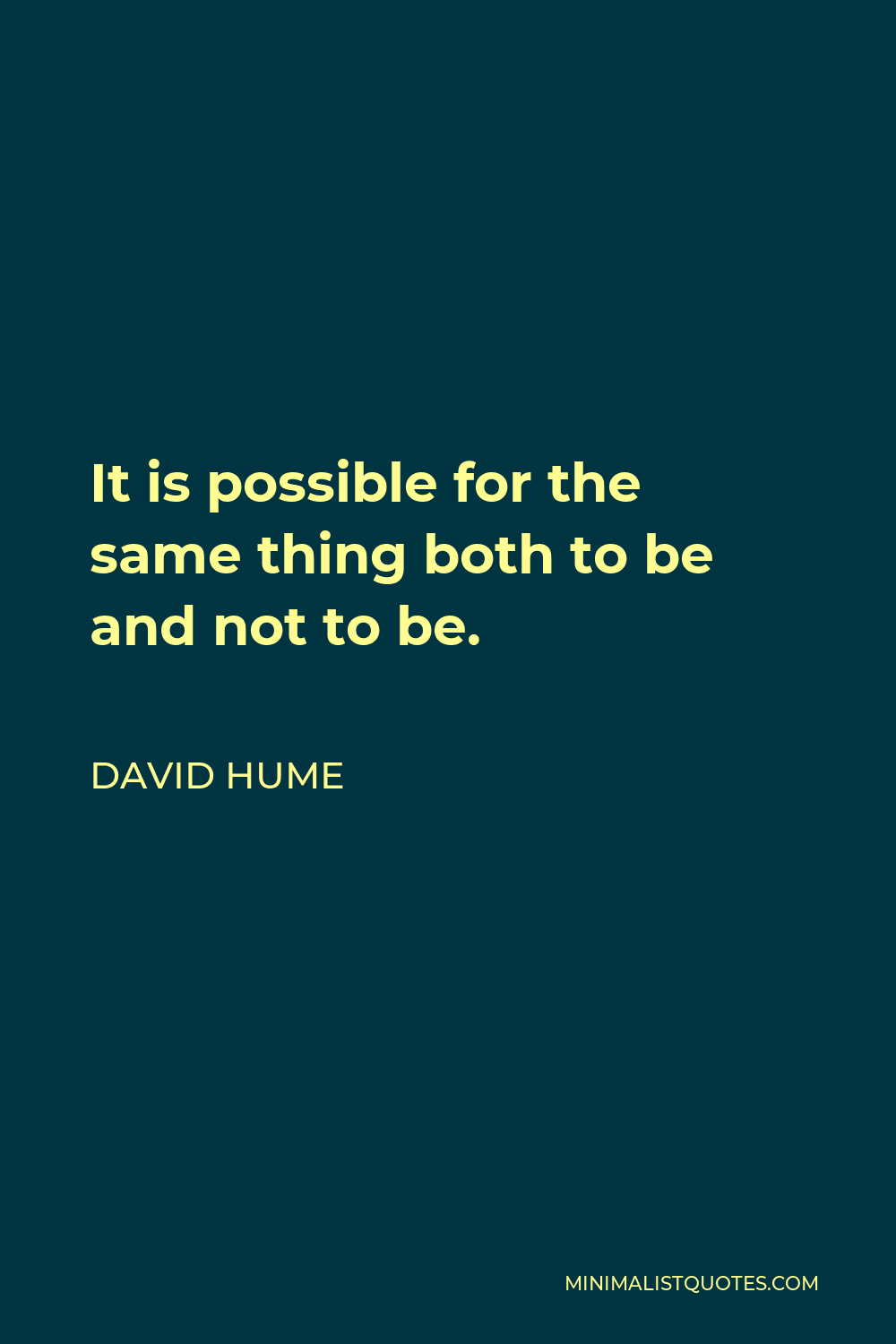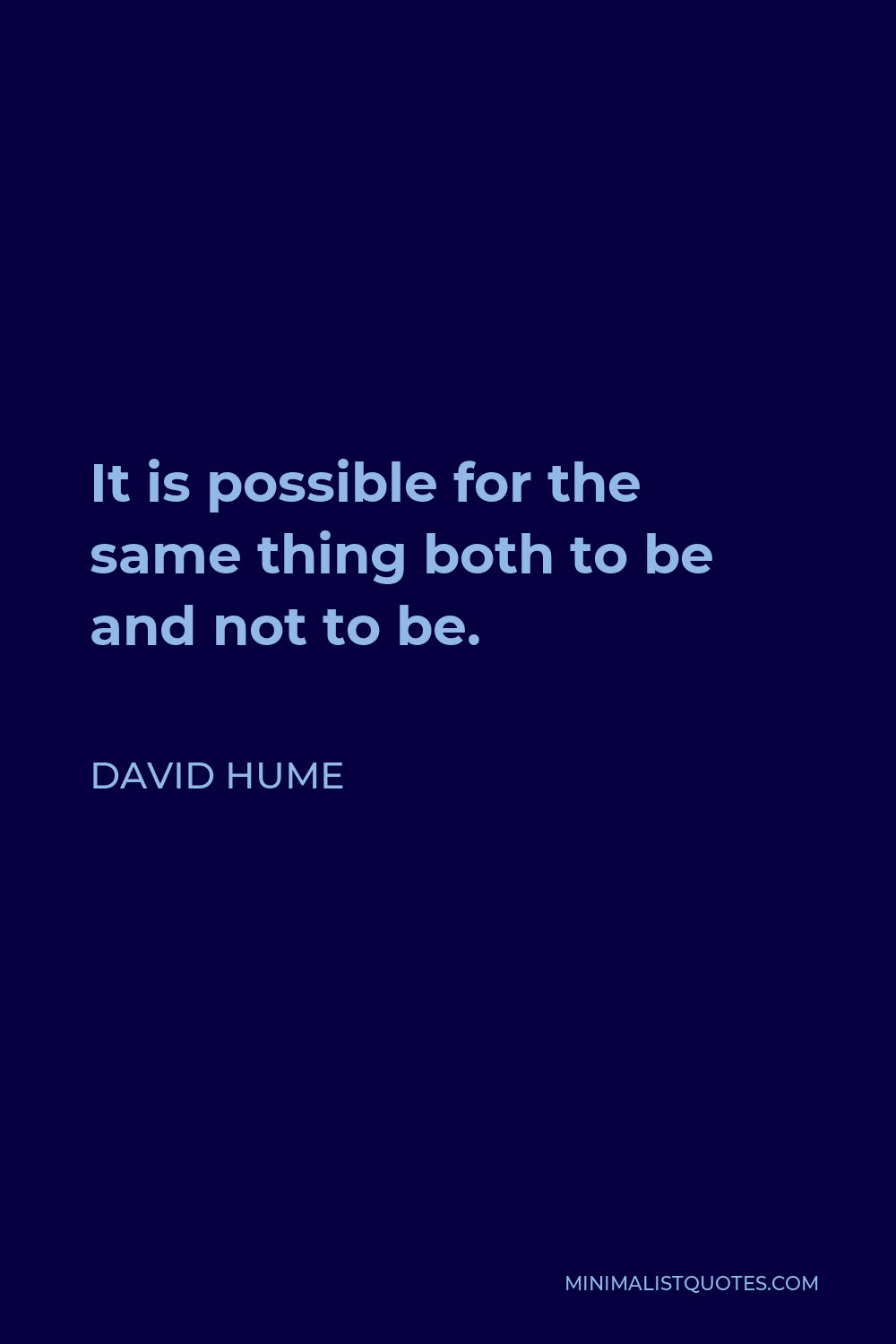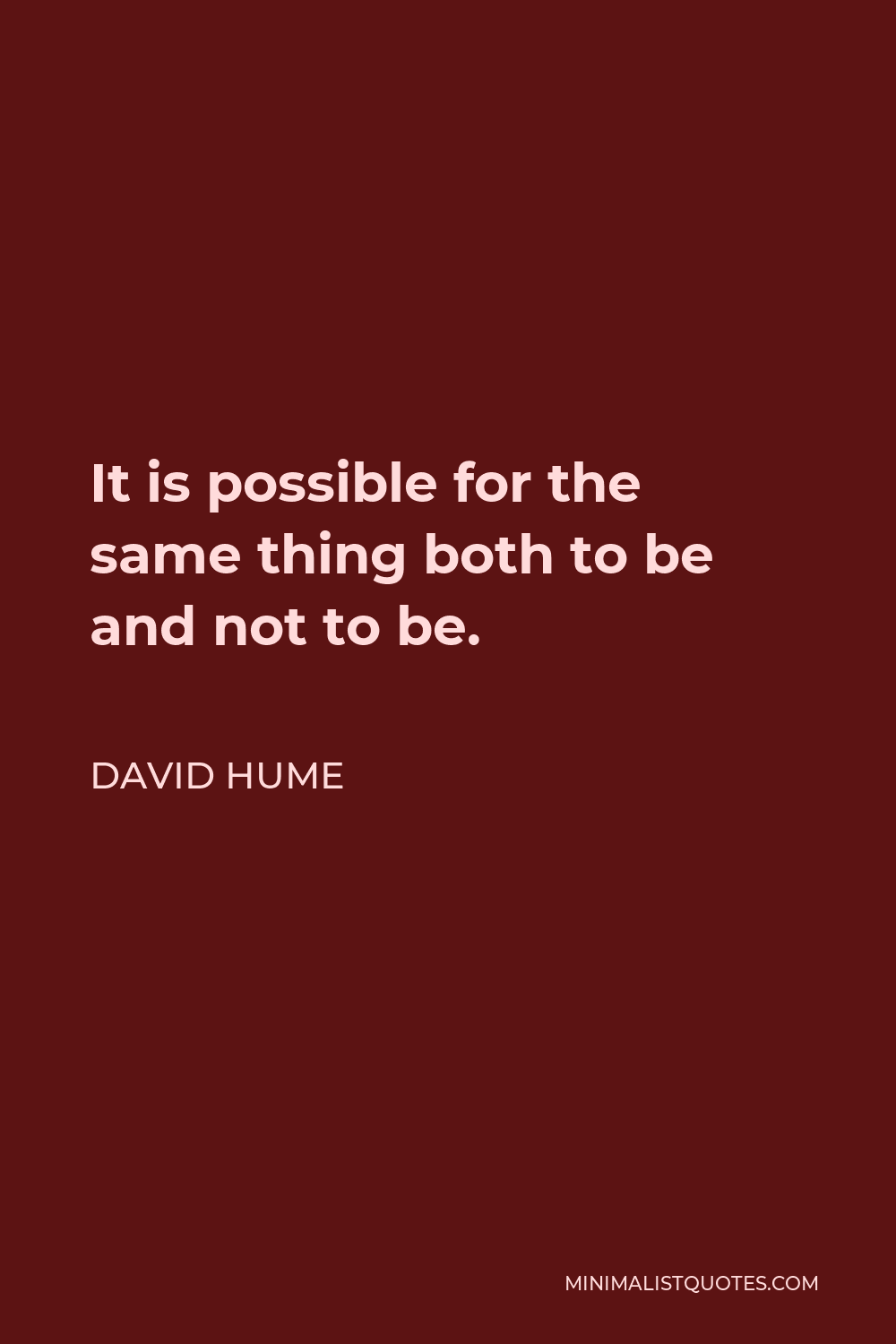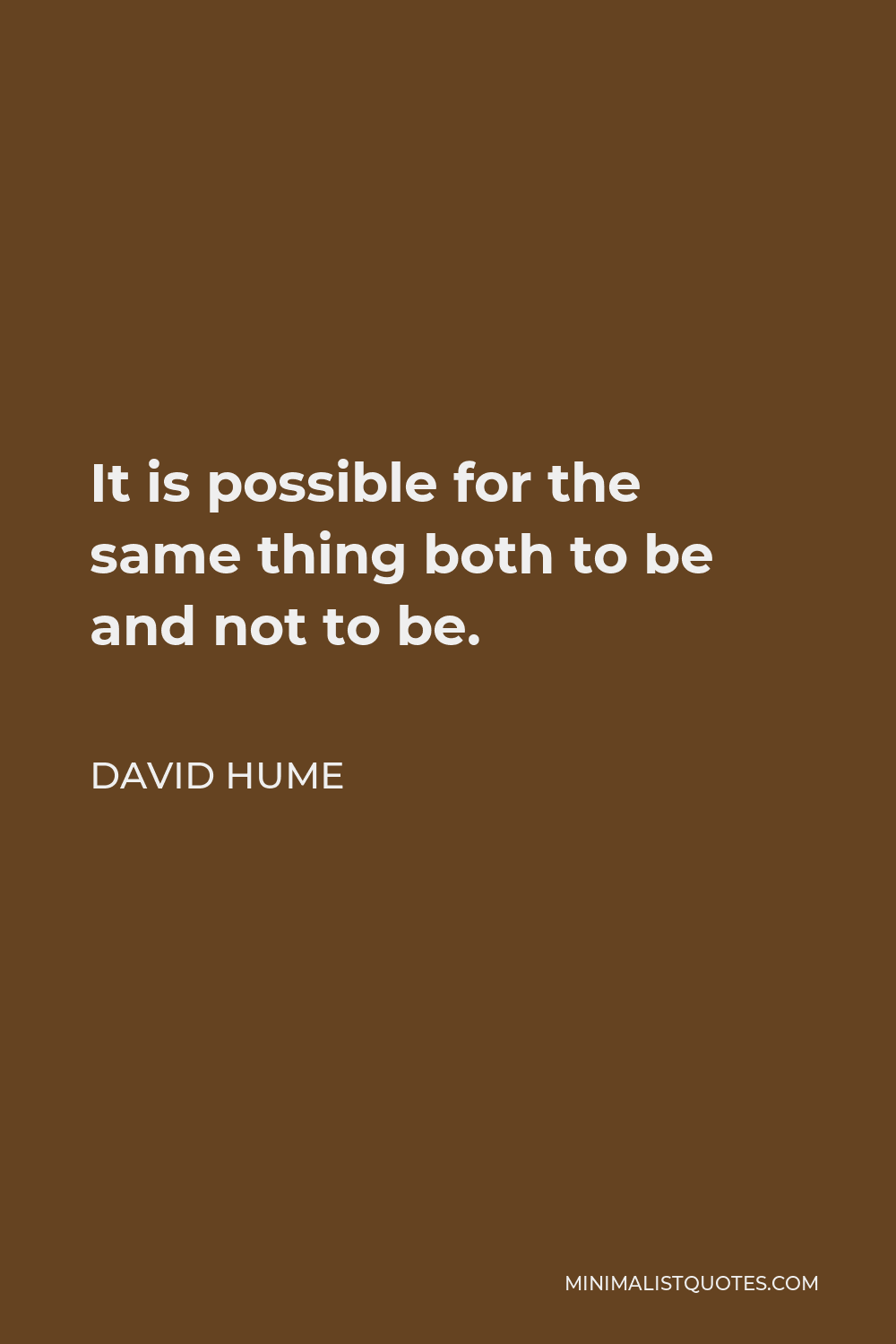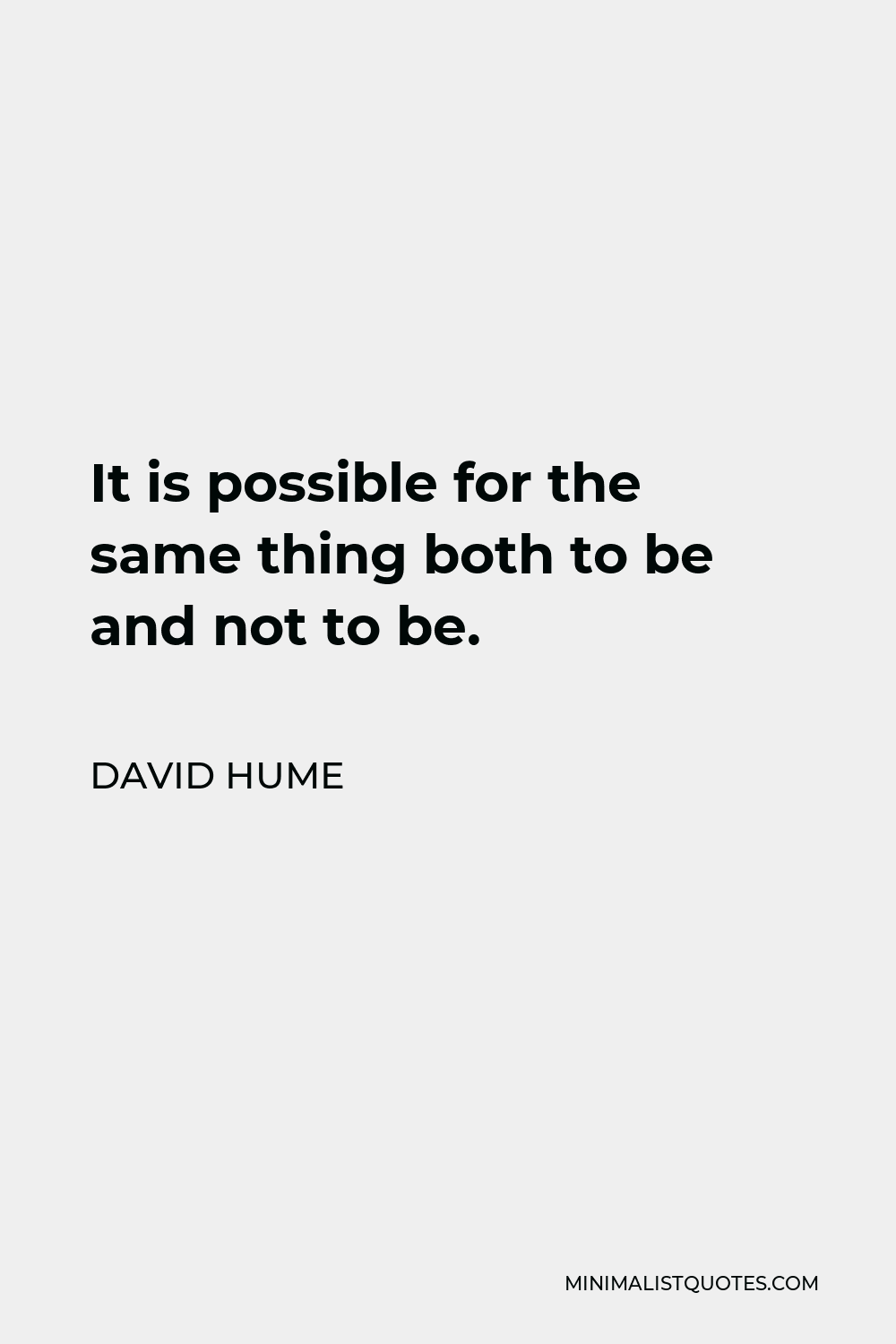The feelings of our heart, the agitation of our passions, the vehemence of our affections, dissipate all its conclusions, and reduce the profound philosopher to a mere plebeian.
DAVID HUMEIt is possible for the same thing both to be and not to be.
More David Hume Quotes
-





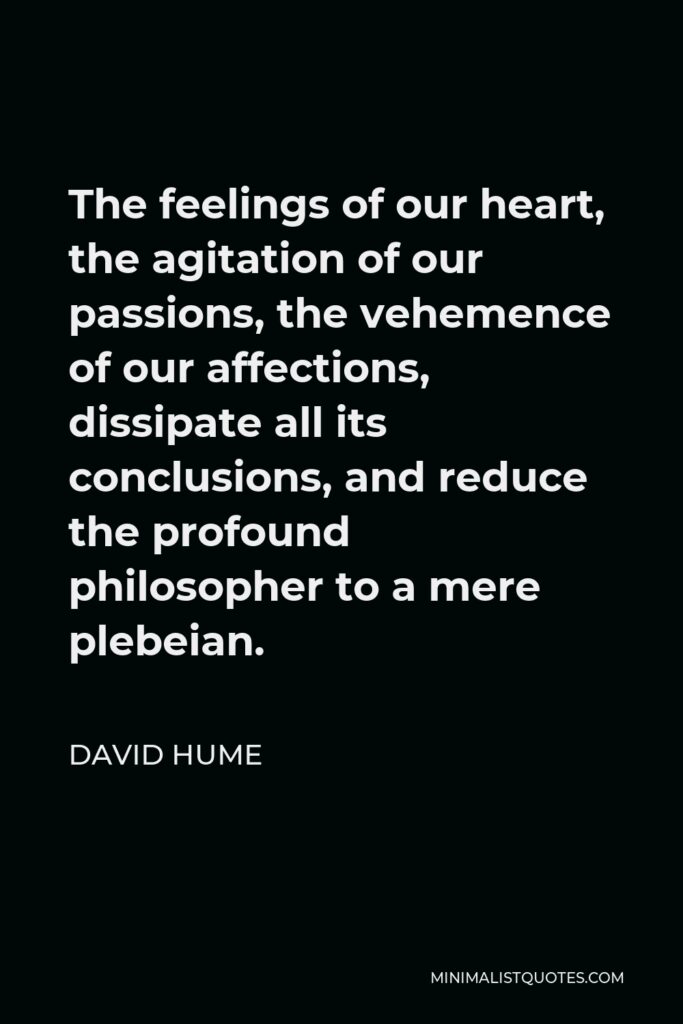

-





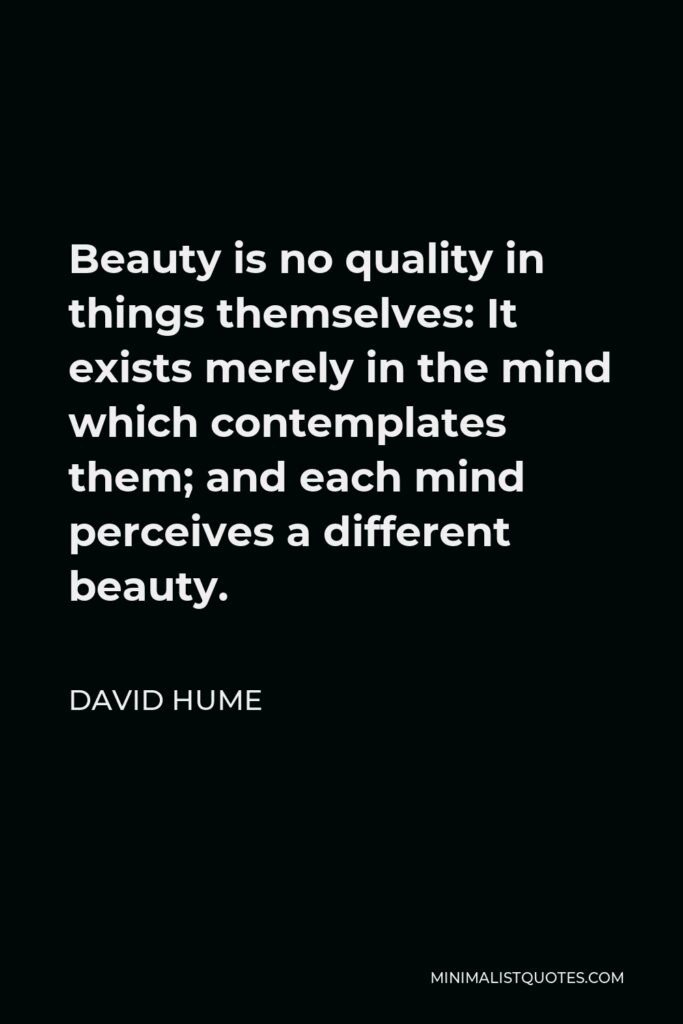

Beauty is no quality in things themselves: It exists merely in the mind which contemplates them; and each mind perceives a different beauty.
DAVID HUME -





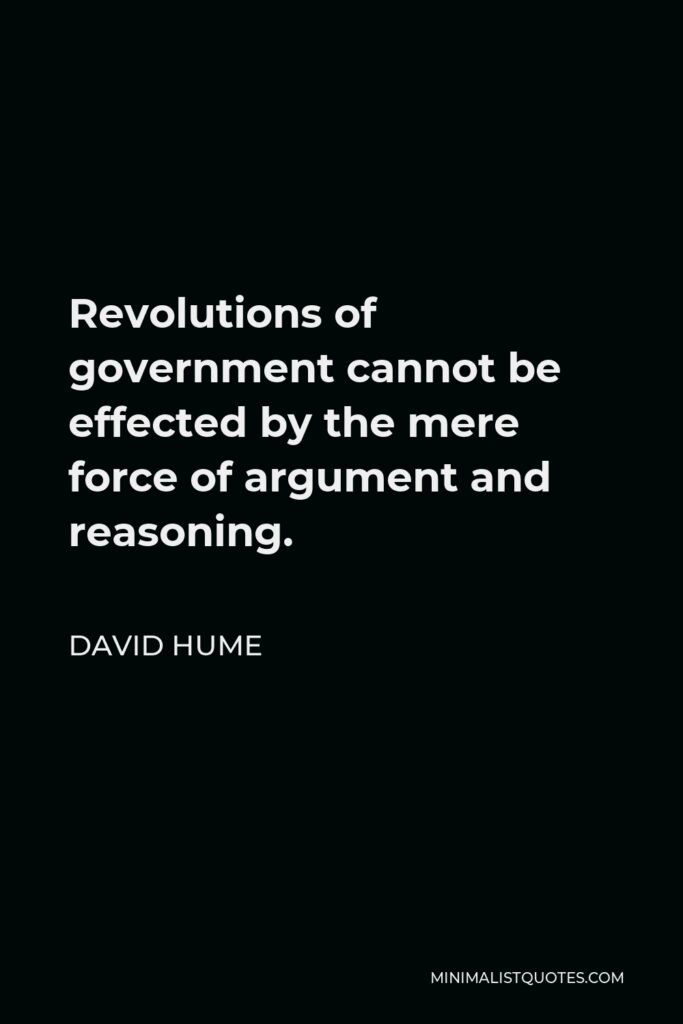

Revolutions of government cannot be effected by the mere force of argument and reasoning.
DAVID HUME -





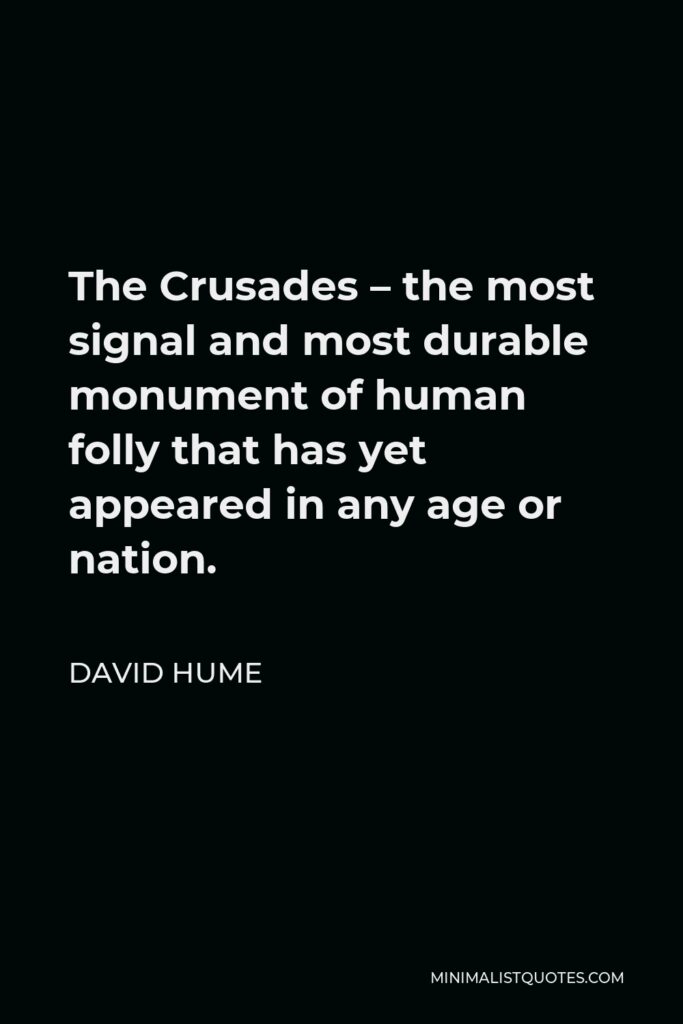

The Crusades – the most signal and most durable monument of human folly that has yet appeared in any age or nation.
DAVID HUME -





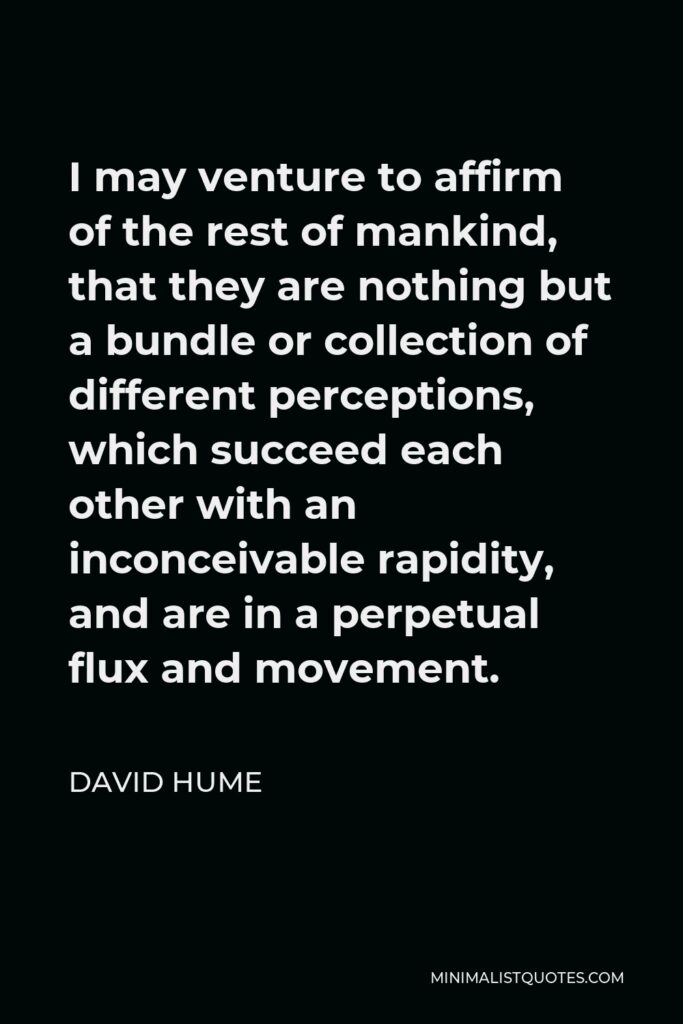

I may venture to affirm of the rest of mankind, that they are nothing but a bundle or collection of different perceptions, which succeed each other with an inconceivable rapidity, and are in a perpetual flux and movement.
DAVID HUME -





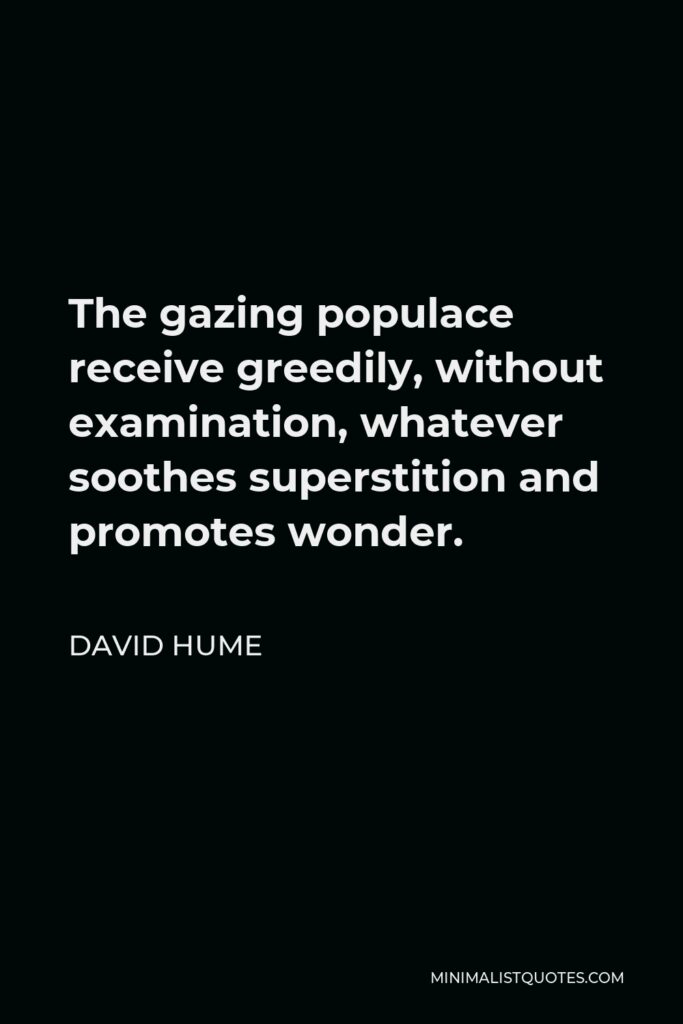

The gazing populace receive greedily, without examination, whatever soothes superstition and promotes wonder.
DAVID HUME -







The bigotry of theologians is a malady which seems almost incurable.
DAVID HUME -





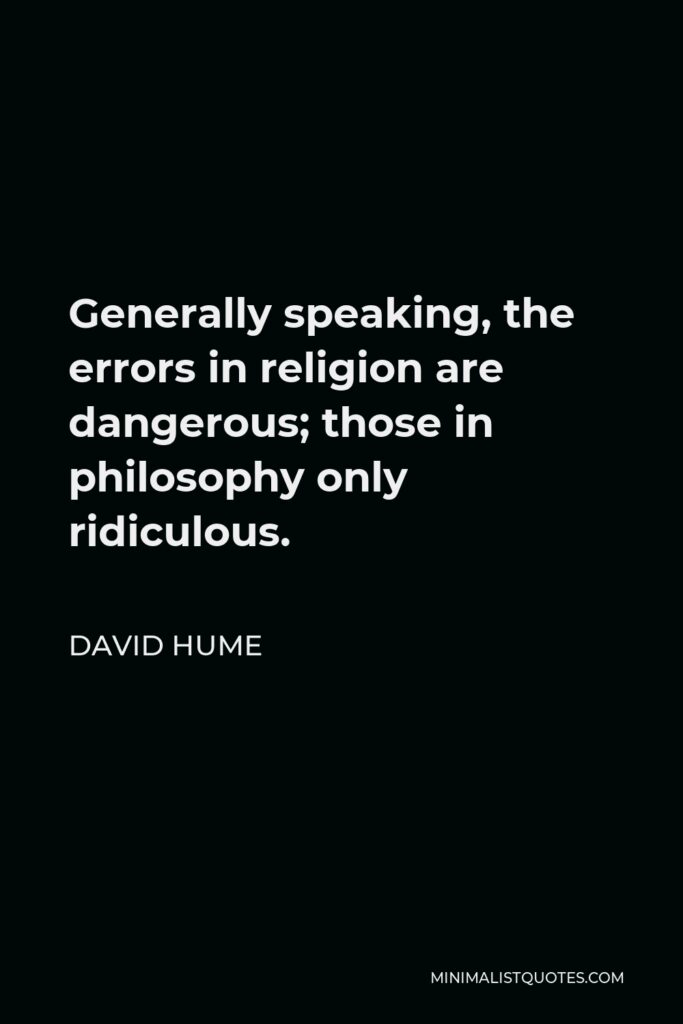

Generally speaking, the errors in religion are dangerous; those in philosophy only ridiculous.
DAVID HUME -







But the greatest part of mankind float between vice and virtue.
DAVID HUME -





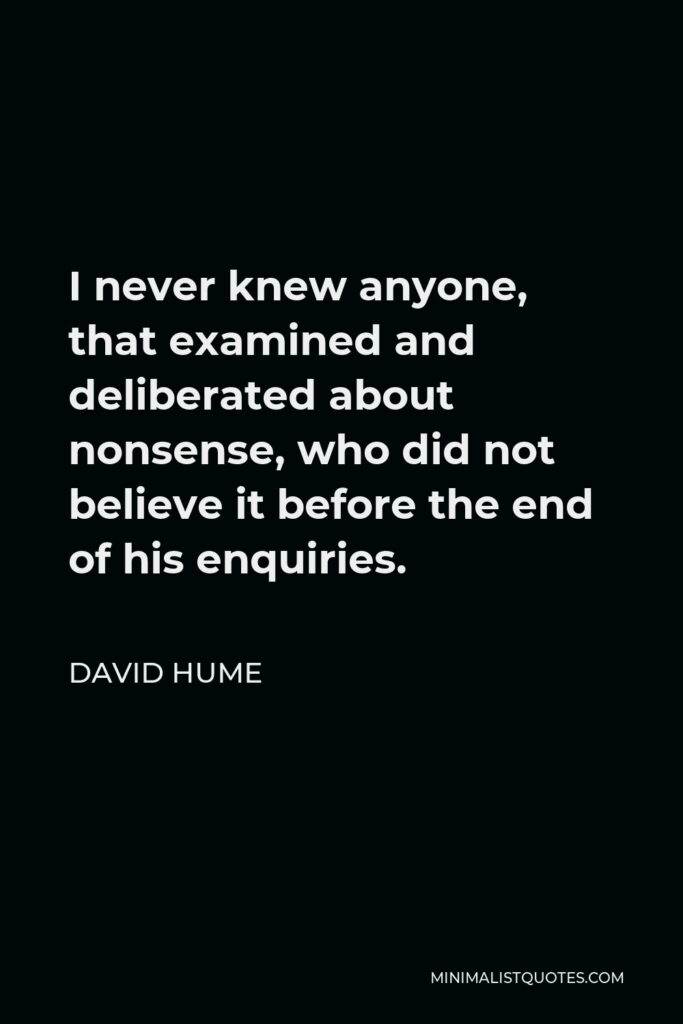

I never knew anyone, that examined and deliberated about nonsense, who did not believe it before the end of his enquiries.
DAVID HUME -







The victory is not gained by the men at arms, who manage the pike and the sword; but by the trumpeters, drummers, and musicians of the army.
DAVID HUME -





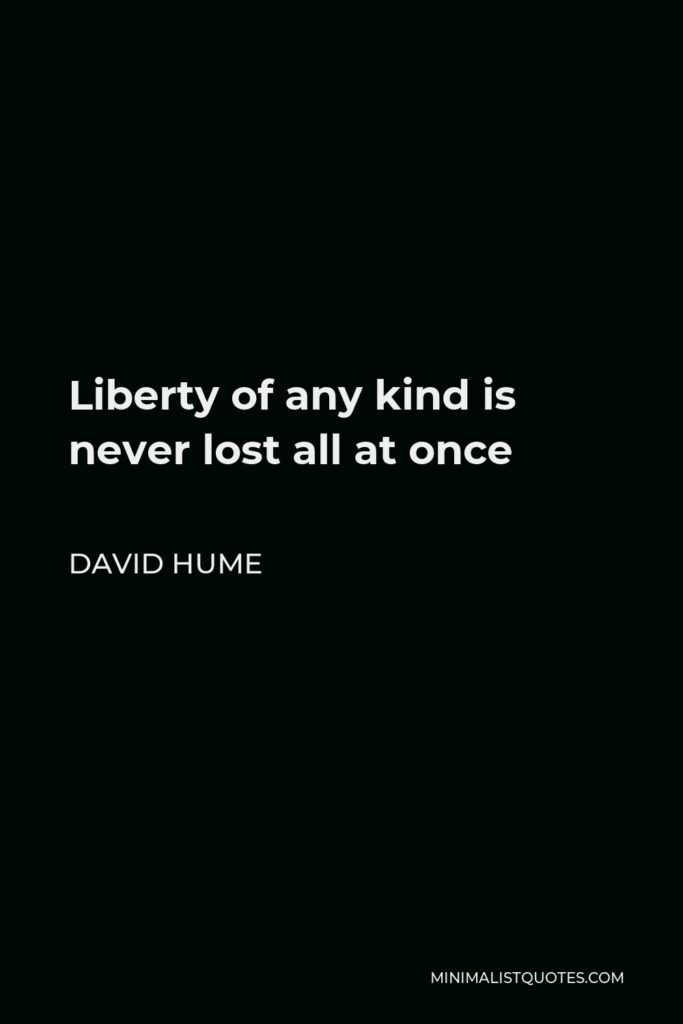

Liberty of any kind is never lost all at once
DAVID HUME -







No man ever threw away life while it was worth keeping.
DAVID HUME -





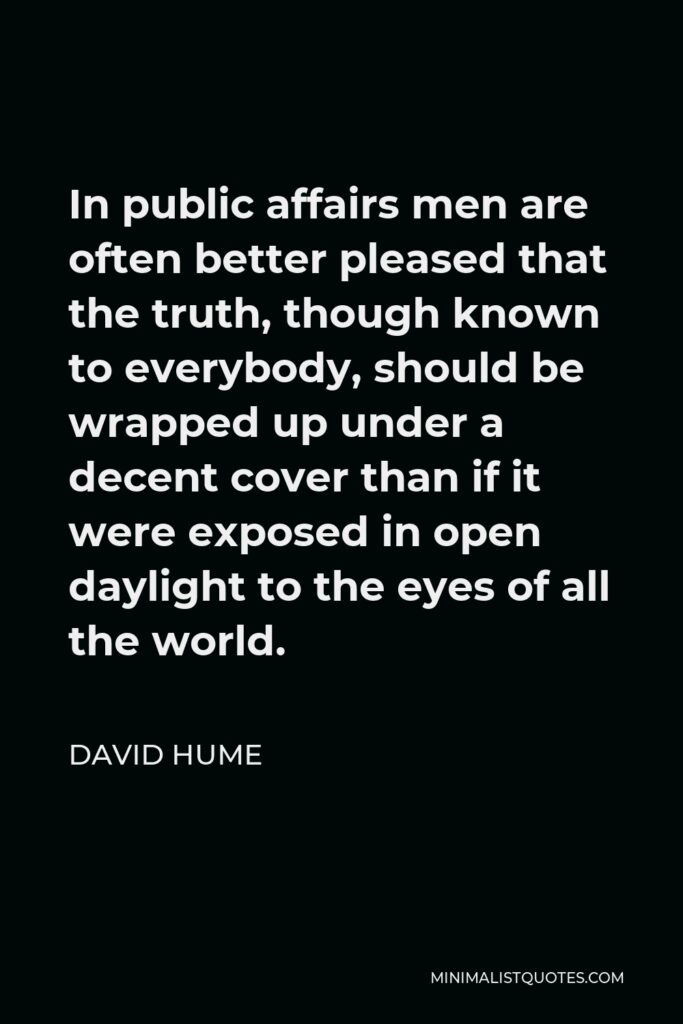

In public affairs men are often better pleased that the truth, though known to everybody, should be wrapped up under a decent cover than if it were exposed in open daylight to the eyes of all the world.
DAVID HUME -





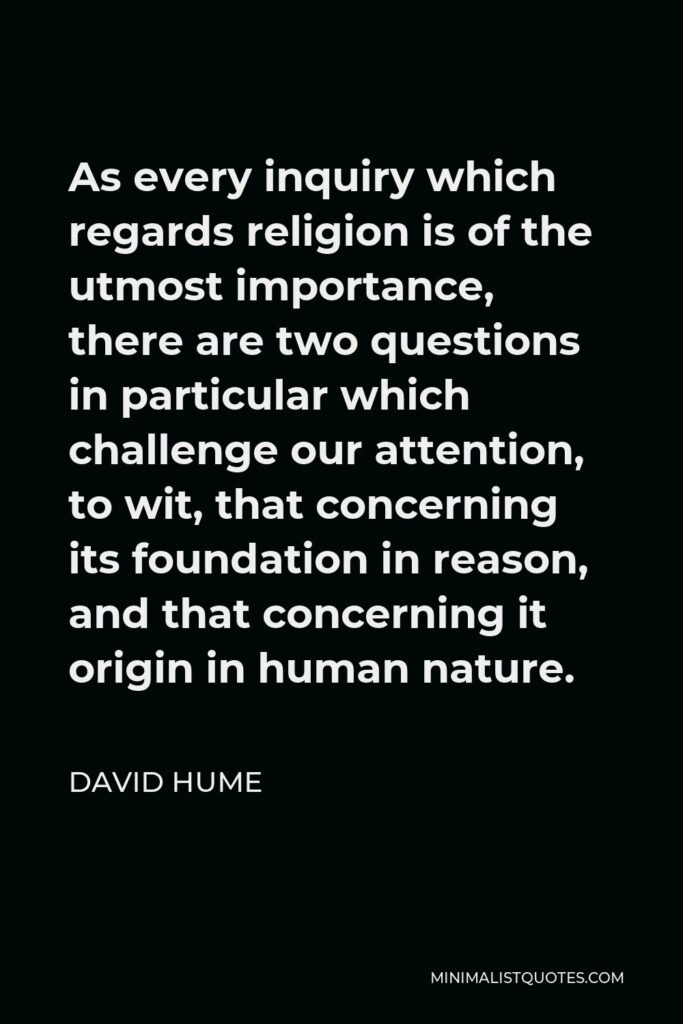

As every inquiry which regards religion is of the utmost importance, there are two questions in particular which challenge our attention, to wit, that concerning its foundation in reason, and that concerning it origin in human nature.
DAVID HUME -





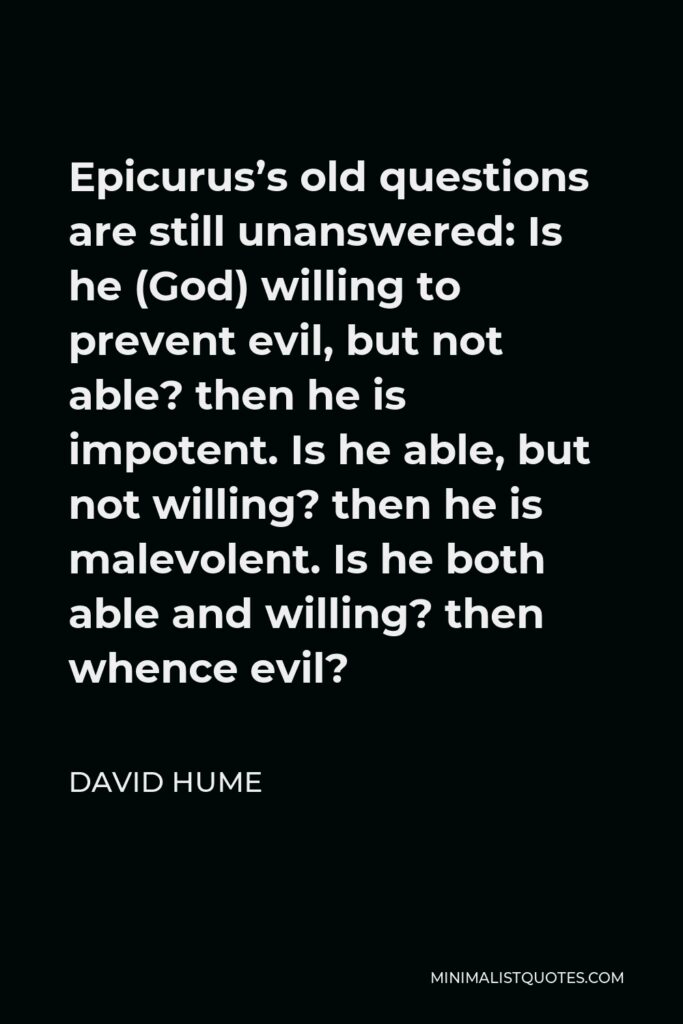

Epicurus’s old questions are still unanswered: Is he (God) willing to prevent evil, but not able? then he is impotent. Is he able, but not willing? then he is malevolent. Is he both able and willing? then whence evil?
DAVID HUME
